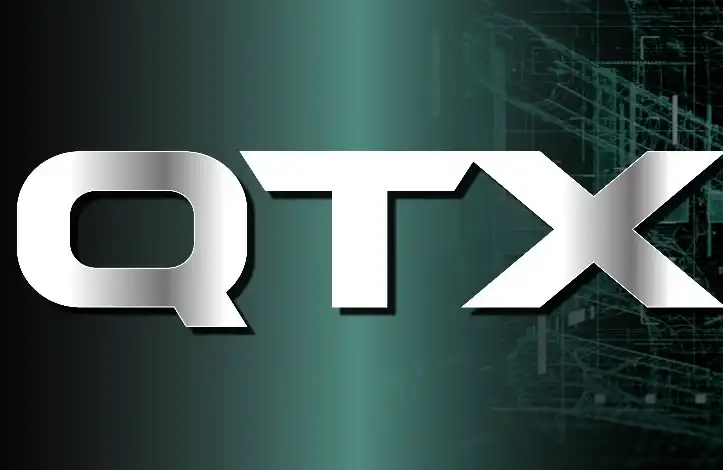A One-Year Hodl Turns 30x, Sol Strategies Rings the Nasdaq Bell
Original Article Title: Sol Strategies Rings 'STKE' Bell
Original Article Author: Prathik Desai, Token Dispatch
Original Article Translation: Block Unicorn
September 9, 2024
Sol Strategies, then still operating under its original name Cypherpunk Holdings, had not yet undergone a rebranding. It was still trading on the Canadian Securities Exchange, a market typically reserved for small and micro-cap companies. Just a few months ago, the company had hired former Valkyrie CEO Leah Wald as its new CEO. At that time, Cypherpunk was relatively unknown, with very low investor interest.
Meanwhile, Upexi focused on promoting consumer goods for direct-to-consumer brands, with a focus on areas such as pet care and energy solutions on Amazon. In this crowded market, the competition for clicks was exceptionally fierce. DeFi Development Corp (DFDV), then still operating under its old name Janover, was preparing to launch a market connecting real estate organizers and investors. On the other hand, Sharps Technology was engaged in the production of specialized injectors for healthcare providers, a highly niche area of medical technology with little investor attention.
These companies were small in scale and ambition at the time. Their total Solana (SOL) holdings amounted to less than $50 million.
A year later, the situation underwent a dramatic change.
Today, they proudly stand on the Nasdaq - the world's second-largest stock exchange - holding over 6 million SOL, with a total value of up to $1.5 billion. This is equivalent to 30 times the value of the Solana tokens they held a year ago.
Last week, the ringing of the bell in New York by Nasdaq was not the only iconic event marking Sol Strategies' listing on the exchange. A virtual bell also rang, signaling the same milestone: STKE officially started trading.
The company invited community members to participate in this ceremony by visiting stke.community and ringing the bell through a Solana transaction. This action will permanently record their involvement in this historic moment. In many ways, this marks Sol Strategies' "graduation" - the company had previously been listed on the Canadian Securities Exchange (under the symbol 'HODL') and the OTCQB Venture Market (under the symbol 'CYFRF'), the latter being a stock market for mid-sized enterprises.
I refer to it as "graduation" because entering the Nasdaq Global Select Market is no easy feat. This market is renowned for its strict standards, usually reserved for blue-chip companies. Through this ordeal, Sol Strategies achieved what most crypto companies dream of but rarely accomplish — legitimacy.
This is also a key reason for Sol Strategies' listing, even though institutional investors seeking to invest in Solana on Wall Street already have Upexi and DeFi Development Corp to invest in.
Differing from Upexi and DeFi Development Corp, both of which were public companies before pivoting to Solana asset management firms, each holding over 2 million SOL, Sol Strategies took the slow path. It established validator operations, secured institutional authorizations like ARK Invest's 3.6 million SOL, passed a SOC 2 audit, and strategically positioned itself on the Nasdaq Global Select Market — the exchange's premier market.
While other companies merely hold SOL, Sol Strategies actively operates the infrastructure supporting it, turning those holdings into a viable business.
I delved into Sol Strategies' balance sheet to understand the story behind the numbers.
For the quarter ending June 30, Sol Strategies reported revenue of 2.53 million Canadian dollars (approximately 1.83 million USD). While this figure may appear ordinary on the surface, the real story lies in the details. This revenue came entirely from staking around 400,000 SOL and operating validators securing the Solana network, rather than from selling traditional products. A second-hand commerce business in the non-crypto sector hindered Upexi's growth, while DFDV heavily relies on ongoing financing to drive growth, with 40% of its revenue still coming from its non-crypto real estate business.
By offering validator-as-a-service, Sol Strategies carved out new revenue streams from its Solana asset management business. This approach provides sustainable revenue without incurring mounting debt or the burden of traditional expenses.
Sol Strategies stewards SOL on behalf of its institutional clients, including the authorization for 3.6 million SOL from Cathie Wood's ARK Invest in July. The commissions from these mandates generate a stable income stream. Call it yield, fees, or whichever term you prefer, but from an accounting perspective, it's revenue — something many cryptocurrency asset managers fail to materialize.

Solana validators usually charge around a 5%-7% staking reward commission. With the base staking yield hovering around 7%, these delegated tokens create approximately 0.35%-0.5% nominal value for the validator annually. Calculated with 3.6 million SOL tokens (worth over $8.5 billion at current prices), this means an annual fee income exceeding $3 million, not including any price appreciation or gains from Sol Strategies' own staked funds. This actually represents an additional revenue stream, surpassing half of its own 400,000 SOL staking rewards, which were entirely created by others' funds.
However, Sol Strategies' net profit for the third quarter showed a loss of 8.2 million CAD (approximately $5.9 million USD). But excluding one-time expenses such as the amortization of acquired validator intellectual property, share-based compensation, and listing costs, its operational cash flow is positive.
What truly sets Sol Strategies apart from its competitors is its view of Solana. For the company, the product is not just the Solana token but the entire Solana ecosystem. This unique perspective is both innovative and strategic, making Sol Strategies stand out in the field.
The more delegates Sol Strategies attracts, the more secure the network becomes. As its validators are seen as reliable, more delegations come in. Each user staking toward a Sol Strategies node is both a client and a co-creator of its revenue, turning community participation into a measurable driver of shareholder value. This approach makes each participant feel invested in the company's success.
This is likely the most significant factor giving Sol Strategies an edge in competing with peers holding more Solana tokens.
Currently, at least seven publicly traded companies control 6.5 million SOL, worth approximately $1.56 billion, representing about 1.2% of the total supply.

In the competition for Solana fund management, each company is vying to become the preferred agent for investors seeking Solana exposure. Each company has slightly different strategies: Upexi acquires SOL through discounted purchases, DFDV bets on global expansion, while Sol Strategies focuses on a diversified asset reserve. The goal is the same: accumulate SOL, stake, and sell packaged products to Wall Street.
The road of Bitcoin's journey to Wall Street has been paved by companies like MicroStrategy, which have transitioned from a software business to a leveraged BTC treasury management firm and achieved great success through a spot ETF. Ethereum has also followed a similar path through companies like BitMine Immersion, Joe Lubin's SharpLink Technologies, and most recently a spot ETF. For Solana, I anticipate adoption to primarily be through operational companies within the network. These companies not only hold assets but also operate validators, earn fees and staking rewards, and issue quarterly returns. This model is more akin to active management rather than an ETF.
It is this combination of asset appreciation and actual cash flow that is likely to convince investors to invest in this manner. If Sol Strategies can succeed, it may become the Solana version of "BlackRock."
The future relationship between Wall Street and Solana will be even closer.
Sol Strategies has been exploring the possibility of tokenizing its own on-chain equity. Imagine if STKE stock not only existed on the Nasdaq but also as a Solana-based token that could be exchanged in a DeFi pool, settling instantly alongside USDC. A stock listed on the Nasdaq trading on-chain would be a bridge that ETFs cannot cross. This is still speculative, but it is a step towards eliminating the boundary between public equity and crypto assets.
However, this is no easy task. Graduating from the Nasdaq also brings new challenges, and Sol Strategies will carry greater responsibility.
Poor validator performance or a lack of governance measures could immediately elicit investor feedback. Sol Strategies has decided to bet on the Solana ecosystem, not just the Solana token itself, which may bring greater risk and corresponding rewards. Solana itself faces network failures and competition from emerging blockchains. If stock investors find the stock trading price significantly below net asset value, arbitragers may sell off, ignoring the fundamentals.
Nevertheless, I believe that Sol Strategies' listing on the Nasdaq represents the best opportunity for Solana to take a leading seat on Wall Street. Can you package on-chain funds into structured investment products and then integrate them into the Nasdaq? Sol Strategies now bears this daunting responsibility.
Welcome to join the official BlockBeats community:
Telegram Subscription Group: https://t.me/theblockbeats
Telegram Discussion Group: https://t.me/BlockBeats_App
Official Twitter Account: https://twitter.com/BlockBeatsAsia


 Forum
Forum Finance
Finance
 Specials
Specials
 On-chain Eco
On-chain Eco
 Entry
Entry
 Podcasts
Podcasts
 Activities
Activities
 OPRR
OPRR







